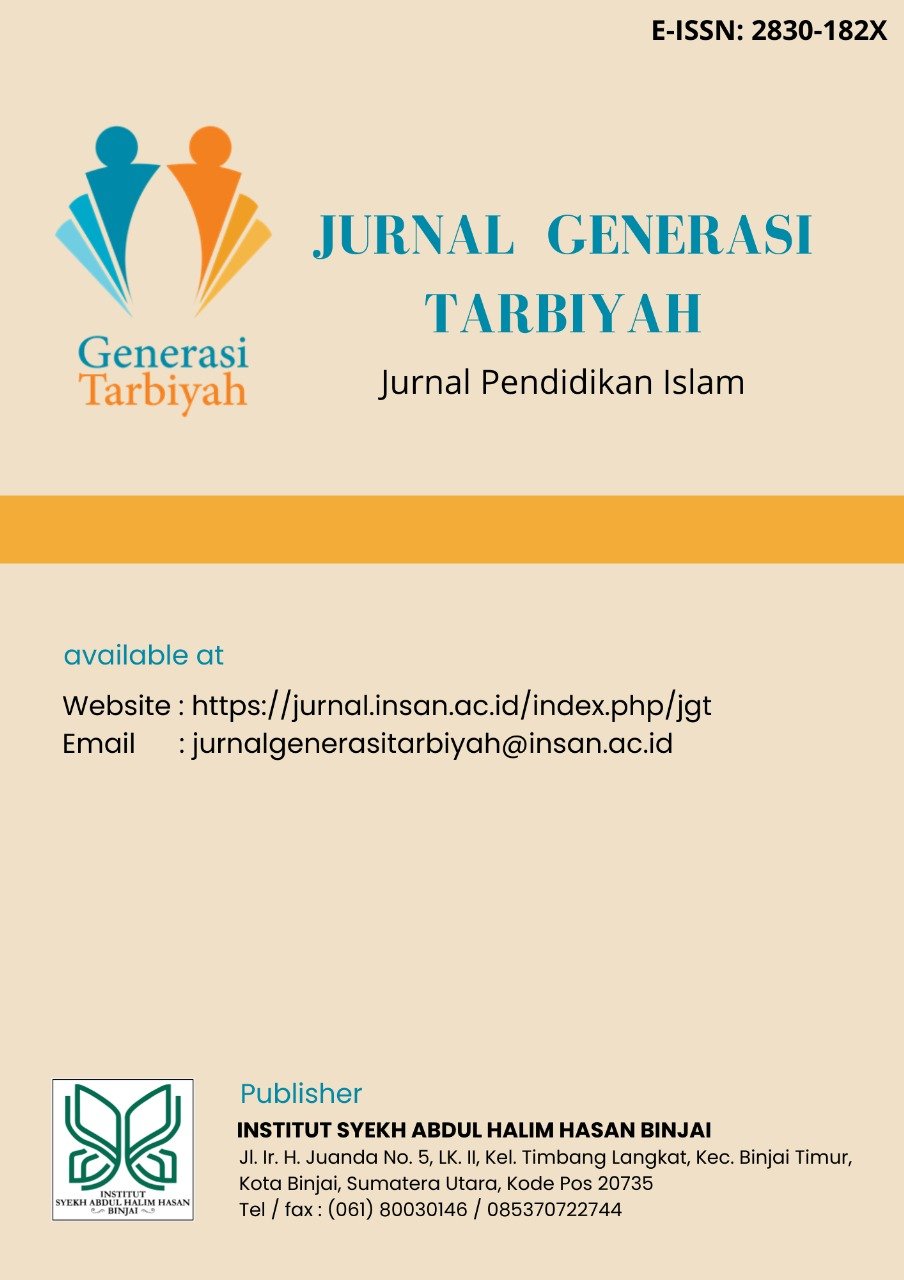Evaluasi Pengembangan Kurikulum Pendidikan Islam Terhadap Siswa
DOI:
https://doi.org/10.59342/jgt.v4i1.549Keywords:
Evaluation, Curriculum Development, Islamic Education, Students, Academic Achievement, Islamic ValuesAbstract
Curriculum development in Islamic education plays an important role in ensuring the effectiveness of learning for students. This research aims to evaluate the impact of developing an Islamic education curriculum on students. The research method used is a survey of various parties related to education, including teachers, students and parents, using specially prepared data collection techniques. The research results show that the development of the Islamic education curriculum has had a significant impact on students' understanding of Islamic values, development of social skills, and increased academic achievement. However, challenges such as consistent implementation and adequate teacher training still need to be overcome.
References
Ali, M. (2011). Pengembangan Kurikulum di Sekolah Bandung; Sinar Baru Schubert.
Bafadal, AR. Fadhal. (2000). Strategi Pengembangan Kurikulum Pendidikan Agama pada Pendidikan Dasar dan menengah. Jurnal Komunikasi Pendidikan Agama Islam, (2).
Firmansyah, M. I. (2019). Pendidikan Agama Islam: pengertian, tujuan, dasar, dan fungsi. Taklim: Jurnal Pendidikan Agama Islam, 17(2), 79-90.
Ismail, M. I. (2019). Asesmen dan evaluasi pembelajaran. Cendekia Publisher.
Mesra, R., & Salem, V. E. (2023). Pengembangan Kurikulum. Surabaya: Pondok indah
William H. (1986) Curriculum: Perspective, Pradigm, and Possiblity. Mew York: Mcmillan Publishing Company.
Sudaryono, Febriani, R., & Rohmah, S. (2019). Terhadap Motivasi Belajar Mahasiswa ( Studi pada Prodi Pendidikan Akuntansi Fakultas Keguruan Dan Ilmu Pendidikan Universitas Banten Jaya ). Jurnal Pendidikan, 2(1).

Downloads
Published
How to Cite
Issue
Section
License
Copyright (c) 2025 Siska Amelia, Zaini Dahlan

This work is licensed under a Creative Commons Attribution-NonCommercial-ShareAlike 4.0 International License.




























